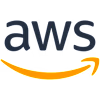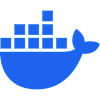Top In-Demand Tech Skills for Freelancers in 2025: Your Guide to High-Paying Gigs

Top In-Demand Tech Skills for Freelancers in 2025: Your Guide to High-Paying Gigs
The Shifting Landscape of Freelance Tech Work
Why Companies are Hiring More Tech Freelancers
Benefits for Freelance Tech Professionals
Core In-Demand Technical Skills for 2025
Artificial Intelligence (AI) and Machine Learning (ML)
Cybersecurity
Cloud Computing (AWS, Azure, GCP)
Software and Web Development (Full-Stack, Mobile)
Data Science and Analytics
DevOps and DevSecOps
Blockchain Technology
Essential Soft Skills for Freelance Tech Success
Communication and Collaboration
Project Management
Problem-Solving and Adaptability
Business Acumen and Self-Marketing
How to Acquire and Showcase These In-Demand Skills
Continuous Learning and Upskilling Strategies
Building a Strong Portfolio
Networking and Online Presence
References
Top In-Demand Tech Skills for Freelancers in 2025: Your Guide to High-Paying Gigs
The Shifting Landscape of Freelance Tech Work
Why Companies are Hiring More Tech Freelancers
Benefits for Freelance Tech Professionals
Core In-Demand Technical Skills for 2025
Artificial Intelligence (AI) and Machine Learning (ML)
Cybersecurity
Cloud Computing (AWS, Azure, GCP)
Software and Web Development (Full-Stack, Mobile)
Data Science and Analytics
DevOps and DevSecOps
Blockchain Technology
Essential Soft Skills for Freelance Tech Success
Communication and Collaboration
Project Management
Problem-Solving and Adaptability
Business Acumen and Self-Marketing
How to Acquire and Showcase These In-Demand Skills
Continuous Learning and Upskilling Strategies
Building a Strong Portfolio
Networking and Online Presence
References
Posted Jun 11, 2025
Discover the most sought-after tech skills for freelancers in 2025. Position yourself for high-paying freelance tech jobs by mastering these future-proof abilities.










